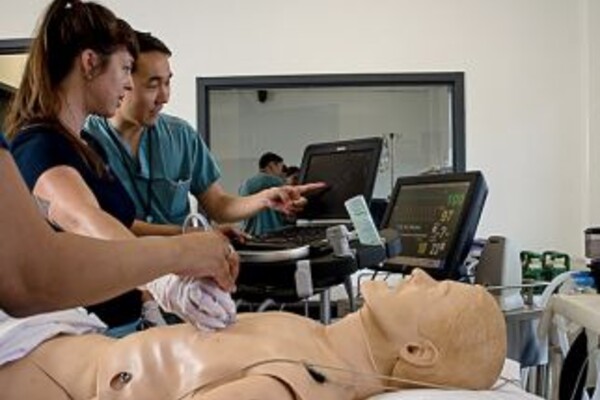Mamatha Bhat Wins Polanyi Prize

Liam Mitchell
Clinician-Scientist Leads Precision Medicine Research to Improve Long-Term Outcomes for Liver Transplant Patients
 It was the wonder of the liver that drew Dr. Mamatha Bhat to her current field of research.
It was the wonder of the liver that drew Dr. Mamatha Bhat to her current field of research.
“It really is a fascinating organ. It performs hundreds of functions that most people aren’t even aware of,” explains Bhat, an assistant professor in the Department of Medicine’s Division of Gastroenterology and staff hepatologist and clinician-scientist at University Health Network’s Multi-Organ Transplant Program.
Bhat, then a resident in gastroenterology at McGill University, was hooked after a rotation in hepatology, which is a branch of medicine that focuses on the liver. She went on to complete a fellowship in Transplant Hepatology at Mayo Clinic in Rochester, Minnesota. This was followed by a PhD in Medical Biophysics supported by the Canadian Institutes for Health Research, with a focus on molecular and computational biology.
“It’s a remarkable thing to see the transformation of someone who is suffering from end-stage liver disease rebound following a liver transplant – to see them go from struggling to continue to live, to finding a new lease on life when a liver becomes available,” she says.
Bhat has been named the recipient of the 2020 Polanyi Prize in Physiology/Medicine. The John Charles Polanyi Prizes are awarded annually to five researchers who are in the early stages of their careers and pursuing post-doctoral research at an Ontario university. Recipients of the Polanyi Prizes are among the province's next generation of innovators.
“On behalf of the Department of Medicine, congratulations to Dr. Mamatha Bhat for this outstanding achievement,” said Dr. Gillian Hawker, Sir John and Lady Eaton Professor and Chair of Medicine.
“Receiving the Polanyi Prize is a confirmation of the tremendous contributions to the field of liver transplant that Dr. Bhat has made already as an early-career researcher, and it will only strengthen the impact she will have on this field of research and the lives of patients.”
The focus of Bhat’s research is to ensure long-term health for patients who undergo liver transplants.
“When you look at the short-term health outcomes of liver transplant patients, within the first year following the transplant, success rates have increased substantially over the last thirty years. But when you look at long-term survival and outcomes beyond one year, there has been very little improvement,” says Bhat.
A lot of the focus of clinical research has been on ensuring the organ isn’t rejected by the patient’s immune system. But, Bhat explains, long-term considerations, including an increased risk of cancer and metabolic disease, have not been as thoroughly investigated.
It’s a problem that is becoming more pronounced, as increasing number of Ontarians undergo liver transplant, and as higher success rates mean transplant patients live longer. Situated in UHN’s Multi-Organ Transplant Program, the largest adult transplant program in North America, Bhat is well-positioned to tackle the challenge. Last year, UHN performed more than 700 transplants, including more than 200 liver transplants.
The precision medicine program Bhat leads uses a combination of laboratory, bioinformatics and data science (machine learning and biostatistical) tools to study post-transplant complications. Her lab focuses on the key complications that compromise the long-term survival of liver transplant recipients: recurrent liver cancer, fatty liver and metabolic disease. She is establishing the first translational research program worldwide dedicated to improving these post-transplant outcomes, through better informed and more personalized prevention and therapy.
Emphasizing the need for translational research, Bhat is leading a team that includes both lab-based and clinical trainees at different stages of training.
“I find the best research emerges from the exchanges between trainees and researchers. Each brings their own perspective, whether it’s a focus on clinical care or lab-based knowledge. The back-and-forth of new ideas leads to some exciting outcomes,” she says.
Critical to fostering that interchange is effective mentorship, says Bhat. She’s thankful for the mentors she has had throughout her career, including Dr. Atul Humar, a professor in U of T’s Department of Medicine and Medical Director of UHN’s Multi-Organ Transplant Program, and Dr. Gregory J. Gores, who supervised Bhat’s liver transplant fellowship at the Mayo Clinic.
Winning the Polanyi Prize is “a great honour,” says Bhat, but also speaks to something larger.
“It’s a wonderful sign of support for the importance of this translational research that will provide improved long-term outcomes for our patients. That’s what means the most,” Bhat says.



